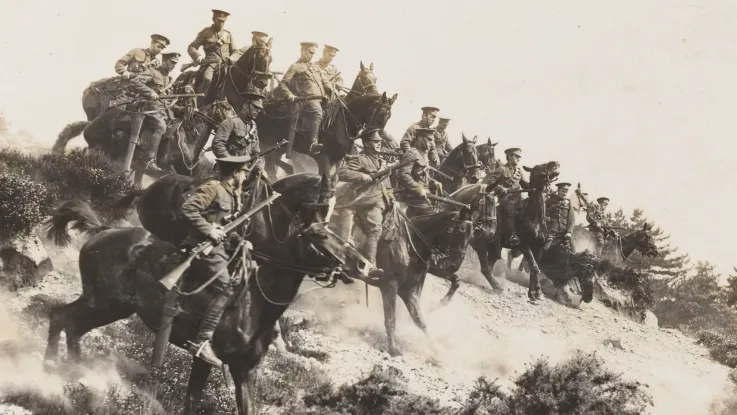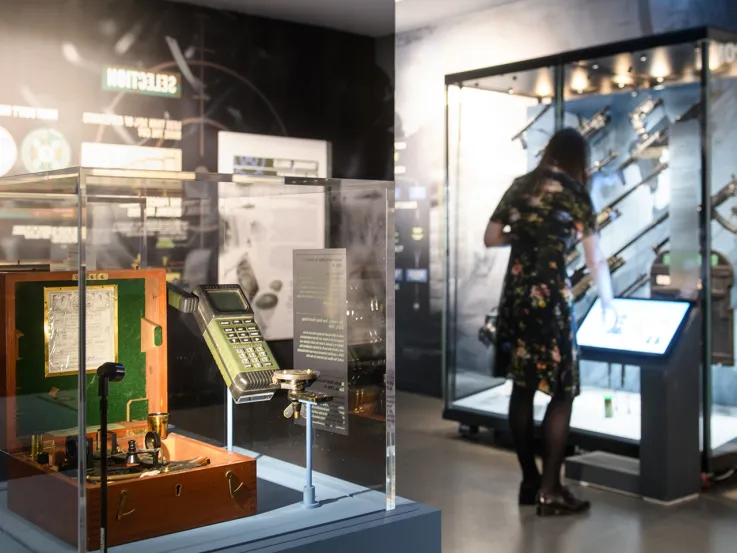Leadership Essay Prize: Frequently Asked Questions
Who can enter?
Anybody! We welcome submissions from anybody with an interest in leadership. Authors do not have to have a military background and can come from any walks of life.
What are the entry requirements?
The most important requirement is to pick the right category!
For the Main Category, we welcome submissions from anybody above the age of 22. Authors should be 22 or older on the day of the deadline (31 March 2023).
For the Junior Category, authors should be between the age of 16 and 21 on the day of the deadline (31 March 2023).
In exceptional circumstances, the Board may be able to consider younger authors. Please contact us with a short explanation of why we should consider you prior to the deadline.
Is there an entry fee?
No, there are no costs involved in participating in the Leadership Essay Prize competition.
Who are the judges and what are they looking for?
The judges are looking for innovative perspectives on leadership. There is no restriction in terms of field. The Board will consider essays discussing leadership in any field (defence, sport, religion, the arts, civil society, the medical profession etc.), country or historical era.
What is Emotional Intelligence?
Emotional intelligence is an essential component of leadership. It is the ability to recognise, understand and monitor one’s own and other people’s emotions and to use this emotional understanding to guide thinking and behaviour. Some people think that Emotional Intelligence can be learned and strengthened, while others see it as an inborn trait.
For the purpose of this essay, authors are free to examine any aspect of Emotional Intelligence and to offer their own interpretation of its relevance and of its relation to leadership.
Who sits on the Board?
The Board consists of five members. They are members of staff of the Centre for Army Leadership and the National Army Museum. A university student is also a full member of the Board. They are all civilians.
How do I submit my essay?
You can submit your essay via the online entry form. Please submit one file only, in Word or PDF format, and no larger than 10MB.
Do I need to use notes and add a final bibliography?
Not necessarily, it is entirely up to you. It depends what kind of essay you submit. If your essay draws on your personal experience and the lessons you have learnt, there may be no need to include notes and final bibliography. If you write a more academic piece, then you should support your argument with notes to the relevant published research and evidence.
Footnotes or endnotes?
If you decide to have notes, please use footnotes.
Do footnotes and bibliography count towards the word limit?
No, they do not.
Does the title count towards the word limit?
No, it does not.
Are in-text citations counted towards the word limit?
Yes, they are.
What referencing style should I use in my footnotes and bibliography?
You are free to use any style you like as long as it is consistent throughout your essay. However, you must include enough information to allow the judges to be able to find and to retrieve the material you use.
How strict is the word limit?
Essays submitted to the main category must not exceed 3,000 words. The word limit excludes, the title, the notes and the bibliography. Essays that exceed the word limit will not be accepted.
In the Junior Category, essays should be no longer than 2,000 words. The word limit excludes, the title, the notes and the bibliography. Essays that exceed the word limit will not be accepted.
Where do I put my abstract and biographical note?
All essays should include a 200-word abstract and a short biographical note including the full name, title/rank/grade (if applicable), and basic information about the author.
The abstract and the biographical note should be put on the first page of the essay just after the main title.
How does the Board decide who will win?
It is a fair and transparent process. The Secretary of the Board will remove all identifying information from the essay before circulating them among the Board members. Each Board member will rank the essays in order of preference. The Board will then meet and discuss their views and come to an agreement. The Board will make the final decision.
How do you prevent plagiarism?
The Secretary of the Board will run the essays through TurnItIn to prevent blatant plagiarism. If there is any suspicion that the whole or part of the essay is plagiarised, the essay will be disqualified.
May I submit more than one essay?
No, authors can submit only one essay.
Do you accept essays written by more than one author?
Yes, we welcome contributions by co-authors. There is no upper limit to the number of authors provided that the Board receives confirmation that all authors contributed to the final version of the essay in equal measure.
If authors submit an essay as part of a team, they are not allowed to submit a second essay as a single author.
Can I write an essay based on a piece that I have already published elsewhere?
No, the essay must be an original piece of work and must therefore be unpublished and not under consideration for publication elsewhere.
When and where will the Award Ceremony take place?
The Award Ceremony will take place at the National Army Museum on Thursday, 18th May 2023. Timings will be confirmed closer to the date.
Do I have to attend the award ceremony to win the Prize?
No. The Board will contact the winners in advance and discuss whether they can take part in the ceremony in person. If the authors are not able to attend in person, a video link can be arranged, or the Prize can be awarded in absentia.
If my essays wins, will it be published?
Authors of the winning essays will be offered the possibility of publishing their piece in the NAM Muster magazine, as a NAM Research Paper, a CAL Occasional paper or a CAL Leadership Insight. The Board reserves the right to decide what publication options to offer to the authors of the winning essays.
If my essays wins and I am offered the chance of publishing it, will I be allowed to amend it?
While the text must remain as close as possible to the original version, there will be a chance for further editing and minor amendments.
Do you have any advice?
Be original and do not be afraid to put your idea forward!
We want to hear about new ideas and experiences that can enrich the debate about leadership and about the importance of Emotional Intelligence. There is no idea, field, approach or sector that is off limits!
Broadly speaking there are two ways of approaching this essay competition:
- Personal perspective:
Authors can draw from their personal experience and discuss what they have observed and learnt. The essay could for example focus on a leadership challenge that the author has faced and how they have dealt with it and what lessons they have learnt. The essay could also discuss the example of a leader who has influenced them personally and explain how they did so. Leaders can be contemporary public figures, historical leaders, or people the author knows in their daily life.
- Academic analysis:
Authors can opt for a theoretical discussion of leadership and its components, delivery, and impact. The focus can be broad and include other elements like trust, followership, team cohesion, mentoring. It is however essential that the focus is clearly on leadership.



